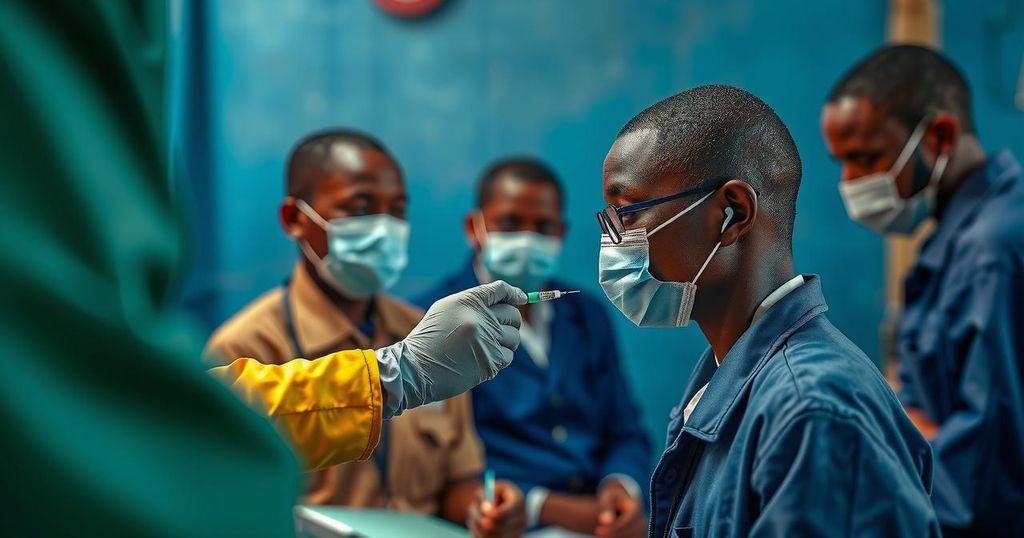Vaccination Campaign Against Mpox Ongoing in DR Congo and Rwanda
Over 50,000 people in the Democratic Republic of Congo and Rwanda have been vaccinated against mpox, a disease that has caused over 1,100 deaths in Africa. The WHO has announced significant allocations of vaccine doses to assist in combating the outbreak, amid warnings of a potential pandemic that could exceed the severity of COVID-19.
On Friday, the Director-General of the World Health Organization (WHO), Tedros Adhanom Ghebreyesus, announced that over 50,000 individuals in the Democratic Republic of Congo (DRC) and Rwanda have received vaccinations against mpox. This significant public health initiative comes in response to the grave impact of mpox, previously known as monkeypox, which has resulted in over 1,100 fatalities across Africa, with the DRC identified as the epicenter of the outbreak. As of January, approximately 48,000 cases of mpox have been reported in the continent. Despite these vaccination efforts, the African Union’s health authority has raised concerns regarding the continuing spread of the virus, emphasizing the potential for a pandemic that could surpass the severity of COVID-19. The WHO’s recent efforts have been bolstered by contributions from the United States and the European Commission, enabling the vaccination of the population in the affected regions. Furthermore, Ghebreyesus highlighted the allocation of nearly 900,000 vaccine doses to nine countries as part of a global distribution strategy managed by WHO and its partners. This marks the initial distribution from a total of nearly six million vaccine doses that are anticipated to be available by the close of 2024 through the Access and Allocation Mechanism (AAM). Mpox is associated with the smallpox virus and is transmitted to humans from infected animals, with the capability for human-to-human transmission through close physical interactions. The disease typically manifests with symptoms such as fever, body aches, swollen lymph nodes, and the formation of a blistering rash.
Mpox, formerly referred to as monkeypox, is a viral disease caused by the mpox virus, a member of the Orthopoxvirus genus, which also includes the variola virus that causes smallpox. The virus can be transmitted to humans through contact with infected animals, primarily rodents and primates, as well as through human contact. The disease is characterized by flu-like symptoms followed by a distinctive rash. In recent months, outbreaks have raised alarms, particularly in Africa, prompting international health organizations to mobilize resources for vaccination and public health measures. The recent spike in cases and mortality has placed pressure on health systems in affected regions, emphasizing the need for effective interventions to control the spread of the virus.
In summary, the ongoing mpox vaccination campaign in the Democratic Republic of Congo and Rwanda represents a critical effort in controlling a disease that has already claimed over 1,100 lives in Africa. With substantial international support and the allocation of vaccine doses to multiple countries, there is hope for curtailing the outbreak and preventing a more severe health crisis. The public health community continues to monitor the situation closely, considering the potential implications for global health security.
Original Source: www.france24.com




Post Comment